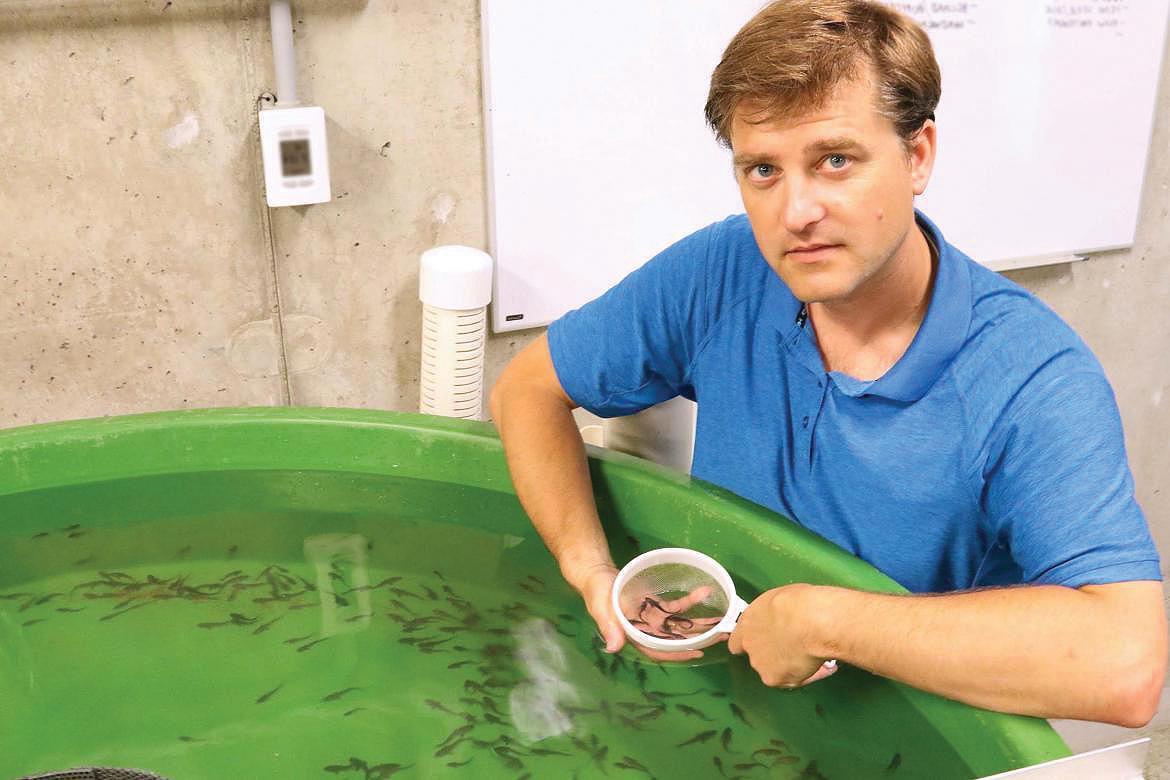
October 17, 2018 - 9:15am
Every year, faculty and students at VIU go out into communities to participate in research that is having significant impacts on the region as well as giving students important experiential learning opportunities. Here are a few projects they engaged in this year - project one of five.
Climate change is having devastating effects on species around the world. In North America, where river systems continue to get warmer year after year, just one day of intense hot weather has the potential to raise water temperatures enough to devastate an entire population of white sturgeon or salmonid eggs and larvae, says Dr. Dan Baker, a VIU fish physiologist.
Baker is researching how increasing temperatures are affecting these populations thanks to a $115,000 Discovery Grant, to be distributed over five years, from the Natural Sciences and Engineering Research Council of Canada.
Discovery Grants provide funding for Canadian researchers to pursue promising breakthroughs and ideas in their field of study and are meant to foster research excellence. The grant also allows Baker to train undergraduate students, as well as several graduate students, to work with him on the research project.
Baker is trying to discover how water temperatures affect the early life stages of white sturgeon and salmonids. These species aren’t able to adapt to temperature changes the same way fish that live in the rivers and streams all year round can. White sturgeon and salmonids are anadromous, which means they go to sea for part of their life and then return to spawn.
“Sturgeon and salmon are two of the most important fish in British Columbia economically, culturally and ecologically,” says Baker. “The Discovery Grant will allow me to focus on conservation topics critical to the survival of these species.”
Difficulties arise when hot, sunny days increase water temperatures, which may in turn greatly alter rates of larval development. Increased water temperatures can speed up development, but this could also lead fish to deplete food sources in their ecosystems before they are ready to head out to sea, says Baker. When the temperatures get too high, development is abnormal, and fish die shortly after they hatch.
Baker’s research could open the doors for other scientists to work on management strategies. Baker says once temperature thresholds are better understood, it could lead to prioritizing management strategies aimed at protecting the fish or manipulating water temperatures of spawning grounds.
*This article originally appeared in the Fall 2018 edition of VIU Magazine. Check out more stories on the VIU Magazine webpage.
Tags: Research | Science & Technology | VIU Magazine






